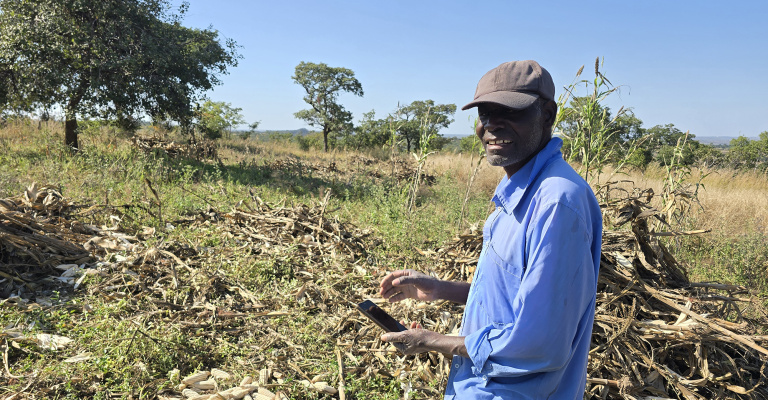
How AI can benefit smallholder farmers in Africa: Opportunities for EU-Africa cooperation
Melody Musoni and Daniel Adeniyi examine the growing role of AI in African agriculture, identify strategic entry points to accelerate its impact and highlight opportunities for EU–Africa cooperation. They argue that AI offers significant benefits, but can only drive sustainable and equitable transformation if it empowers smallholder farmers, who continue to face barriers such as high costs and limited connectivity.
This paper is the second of a three-part series in which we explore how AI is used across Africa in three critical sectors: health, agriculture and education.
Summary
Agriculture remains a cornerstone of Africa’s economy. Yet, agricultural productivity is among the lowest globally due to climate risks, outdated practices, limited access to input, finance and markets, and weak policy support. Artificial intelligence (AI) offers a promising avenue to help overcome these challenges and build more resilient and inclusive agri-food systems.
In this paper, we explore the growing role of AI in African agriculture and identify strategic entry points to accelerate its impact. AI is increasingly used for early warning systems, crop and disease diagnostics, climate-smart advisory services and agri-fintech solutions. These tools have shown early success in boosting yields, enhancing resource efficiency and improving credit access, sometimes with EU support.
However, the benefits of AI are unevenly distributed. Many innovations target big commercial farms, while smallholders face major barriers such as high costs, poor connectivity, fragmented data ecosystems and limited digital literacy. Policy and investment gaps hinder their participation, especially in underserved regions and less-explored sectors like livestock.
We argue that AI could be a powerful catalyst for sustainable and equitable agricultural transformation in Africa if it empowers rather than marginalises smallholder farmers. Achieving this requires supportive policies, financial support and alignment with African development frameworks. Strong government leadership is essential to support inclusive innovation ecosystems, prioritising multilingual and user-centred tools that are adaptable to diverse crops. We also highlight opportunities for greater EU-Africa cooperation, not only through funding, but also through co-creation, capacity building and ethical data governance.





